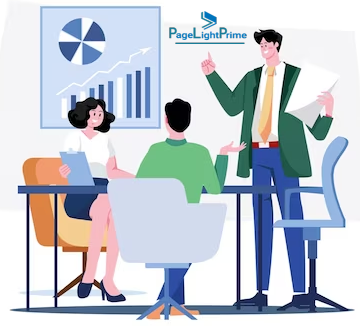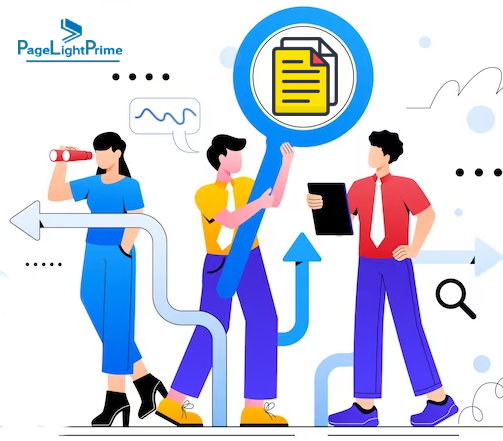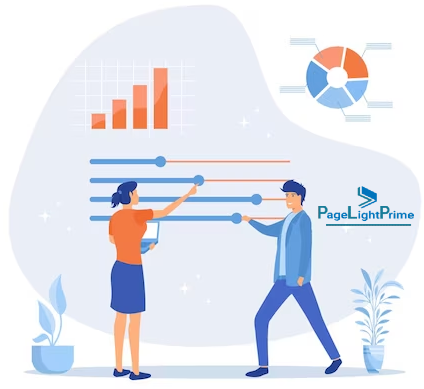Content Search in Legal Document Management Systems
Access to relevant information is paramount. The ability to efficiently search and identify content within Legal Document Management Systems (DMS) is essential for legal professionals. In this blog, we will delve into the best practices for content search within Legal DMS, including the use of metadata, enterprise keywords, AI-enhanced search, refiners, and saved searches.
Written by Knowledge Team, posted on October 04, 2023

Understanding the Challenge
Legal professionals often deal with vast volumes of documents, each containing critical information. Whether it’s contracts, case law, court documents, or client communications, finding the right information quickly can be a daunting task. Traditional file cabinets and physical storage are no longer sufficient, leading to the adoption of digital solutions like Legal DMS.
Best Practices for Content Search in Legal DMS
Metadata for Organization and Classification
Metadata is crucial in Legal DMS. It involves attaching descriptive information to each document, allowing for better organization and searchability. Best practices for metadata include:
Uniformity
Ensure consistent metadata entry by using predefined categories and standards. This prevents variations in naming conventions and improves search results.
Relevance
Include metadata fields that are directly related to the content and its context. Common metadata elements in legal documents include client names, case numbers, dates, and practice areas.
Automated Metadata
Leverage automation tools within your Legal DMS to extract relevant metadata from documents. This reduces manual data entry and human error.

Enterprise Keywords
Enterprise keywords are standardized terms or phrases used to tag documents. They provide a common vocabulary that enhances search and retrieval. Best practices for enterprise keywords include:

Taxonomy Development
Create a well-structured taxonomy of keywords that align with your organization’s legal practice areas. This ensures consistency in tagging.
User Training
Train users on the importance of using enterprise keywords consistently. Encourage them to tag documents with relevant keywords as part of their document management workflow.
AI-Enhanced Search
Artificial Intelligence (AI) can revolutionize content search in Legal DMS. AI-powered search algorithms can understand context, synonyms, and user behavior, providing more accurate results. Best practices for AI-enhanced search include:
Machine Learning
Implement machine learning models to improve search relevance over time. These models can adapt to user behavior and document trends.
Natural Language Processing (NLP)
Utilize NLP to understand the intent behind search queries. NLP can identify synonyms and related terms, ensuring that users find what they need even if they don’t use the exact terminology.
Relevance Scoring
Implement a relevance scoring system that ranks search results based on factors such as document recency, user history, and keyword relevance.

Refiners for Precise Searches
Refiners, also known as facets or filters, allow users to narrow down search results quickly. Best practices for using refiners include:

Metadata-Based Refiners
Create refiners based on common metadata categories, such as document type, date, or practice area. This enables users to filter results by specific criteria.
Dynamic Refiners
Implement dynamic refiners that adapt to the current search context. For example, if a user searches for “contracts,” relevant refiners may include contract types, contract parties, and contract dates.
Saved Searches for Efficiency
Saved searches allow users to save their frequently used search queries for quick access. Best practices for saved searches include:
User Customization
Allow users to create and manage their saved searches. This empowers them to tailor the system to their specific needs.
Notifications
Implement notifications for saved searches. When new documents matching a saved query are added, users should receive alerts to stay updated.

Introducing PageLightPrime Legal DMS
PageLightPrime law firm document management software is built on SharePoint, a renowned platform known for its effective search capabilities. PageLightPrime Legal DMS combines the power of SharePoint’s search functionalities with specialized features tailored to the legal industry, providing:

Robust Search Algorithms
PageLightPrime Legal DMS utilizes SharePoint’s powerful search algorithms enhanced with AI-driven capabilities, ensuring that legal professionals can quickly locate the documents they need.
Advanced Metadata Management
The system offers comprehensive metadata management tools, allowing for precise document categorization and tagging, which, in turn, enhances search accuracy.
Seamless Integration
Being built on SharePoint means PageLightPrime Legal DMS seamlessly integrates with Microsoft Office applications and other collaboration tools, streamlining your workflow.
Security and Compliance
Rest assured that your sensitive legal documents are protected with SharePoint’s robust security features and compliance capabilities.

Conclusion
In the modern legal landscape, the ability to efficiently search and identify content within Legal Document Management Systems is critical for success. By adopting best practices such as metadata utilization, enterprise keywords, AI-enhanced search, refiners, and saved searches, legal professionals can streamline their workflow, improve productivity, and ensure that they always have access to the right information at the right time.
With PageLightPrime Legal DMS, built on SharePoint, you can take your content search capabilities to the next level. Embracing these best practices for content search, along with the powerful features of PageLightPrime Legal DMS, will not only enhance the efficiency of legal operations but also contribute to better client service and overall success in the field.
